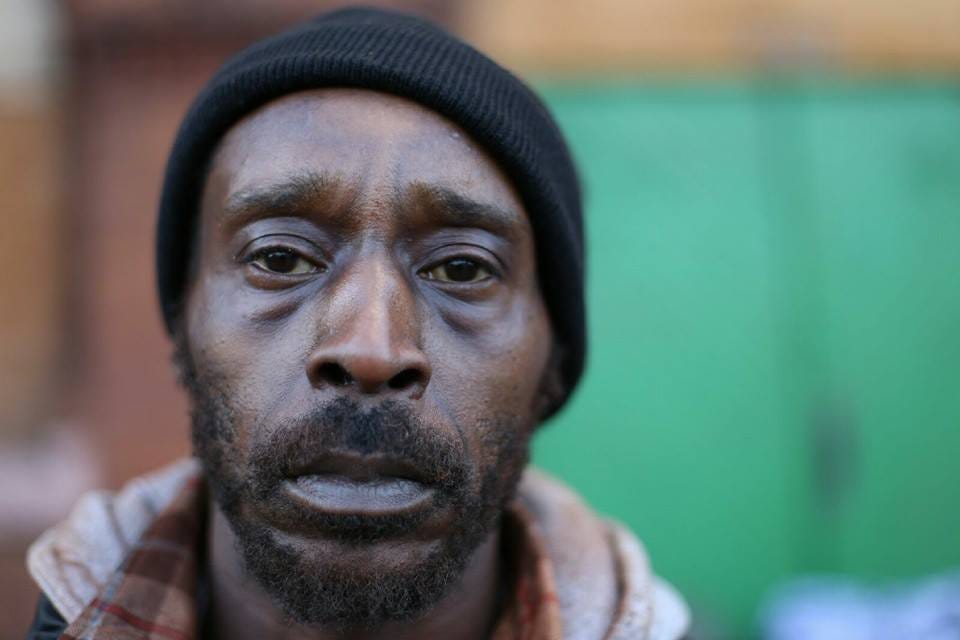Steps
Though this low-budget drama has questionable production values and an amateurish supporting cast, it also features the great Rob Morgan as a homeless man seeking a redemptive path.
This review is part of our free content available to everyone. Please consider supporting Film Yap with a modest paid subscription to enjoy everything we publish plus exclusive opportunities.
By any objective standard, "Steps" is not a good movie. It looks like it was shot on virtually no budget, and the editing and other technical aspects are ham-handed. There's a lot of amateurish acting in the smaller supporting roles. Much of the dialogue is repetitive and sounds like the actors were making it up on the spot. And it's at least 20 minutes longer than it needs to be.
But it also features Rob Morgan, who may not be a household name but deserves to be recognized as one of the great film actors working today. He gave an Oscar-worthy turn in “Just Mercy” (predictably overshadowed by Jamie Foxx during awards season) and has worked steadily in supporting roles in big films and leads in smaller ones like this.
He plays Brian, a successful attorney whose life came apart when he was shot by a street thug. He became hooked on alcohol, fell into despair, lost his job and abused his partner, Wendy (Tia Dionne Hodge), just as they were expecting their first child. He ended up homeless for 14 years as the story opens, and slowly begins the long climb up a redemptive path.
I’m not sure if “Steps” is explicitly a faith-based production. Certainly, there is a lot of God talk and a major figure is Marvin (Roberg G. McKay), the pastor of a local church who befriends Brian, gives him his first hand up out of the darkness and a place to live. We see a lot of scenes that show what a pivotal role Black congregations play in their communities. But there’s no overt proselytizing and Brian’s own beliefs remain rather vague.
Maybe it’s a token of the success of religious-based filmmaking movement that it has become hard to distinguish between those made for religious audiences and movies that just happen to have faith in their makeup.
Brian wants to stop drinking, get off the streets and reconnect with Wendy and his son, Omar (Darius Kaleb), who he’s never officially met but spies on when he’s leaving school. She has a court order against him, and is now affianced to Kirk (Justin Kennedy), a successful car salesman, so the chances of that seem dim.
After Father Marvin gives Brian a room in exchange for cleaning up the church, things start to turn around. He gets a job as a home health aid that he seems to enjoy. He goes to AA meetings and cleans himself up. Things are looking good.
But then Brian goes into a tailspin when he’s assigned to care for Taj (Walter Fauntleroy), a young former gangbanger in a wheelchair who’s run off every other aide worker with his anger and demands. Turns out Taj is the same robber who shot him all those years ago, and Brian would like nothing better than to strangle Taj for destroying his life.
But, Father Marvin reminds us, we can’t expect forgiveness from others if we aren’t willing to give it ourselves. So Brian goes to work for Taj, at first refusing to even speak to him — they communicate via notes — or do anything to help him beyond the bare minimum of his job.
But Taj, who himself was shot in retribution for one of his other deplorable acts, starts to see in Brian a kindred spirit. The two men gradually begin to form a relationship, and Brian even convinces Taj to stop being a shut-in, and Taj counsels Brian on how he can find a way to connect with Omar.
“Steps” was directed by Jay Rodriguez Jr. and Rock Davis from a screenplay by Eddie Harris. All are relative newcomers to feature film production, and it shows. The movie lacks the technical polish you’d expect of an indie or even senior student films. Scenes will sometimes just end abruptly, and the camera angles often seem off.
But, there is Morgan to hold it together. With his stern gaze and subtle body language, he gives Brian a sort of self-hating pride and grace. He’s a man who’s been through the ringer, had a lot wrong done to him and that he’s done to others, and it weighs heavily on his soul. But we also get to witness his willingness to rise above and see that there is worth in himself and in others.
As the title implies, no matter how long the climb is, every step you take matters because it could lead to your downfall, or get you that much closer to the summit.



